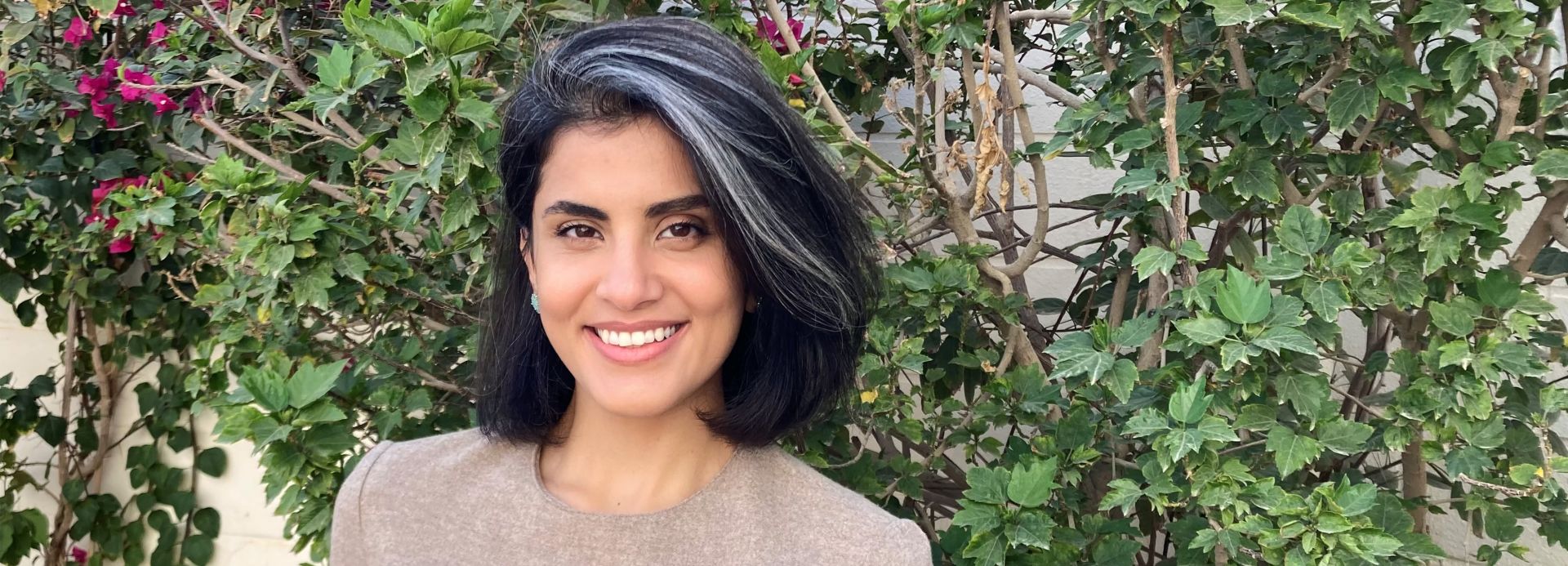
Patron 2021: Loujain al-Hathloul
We are honoured to welcome Saudi Arabian women's rights activist Loujain al-Hathloul as our patron this year. Saudi Arabia's best-known women's rights activist was arrested in May 2018 along with more than a dozen other women human rights defenders. She was detained for more than three years.

Her sister Lina al-Hathloul lives as a lawyer in Brussels, making her one of the few family members able and willing to stand up for her sister. She give the opening speech at the festival on her behalf.
We interviewed Lina about the current situation of her sister and women's rights in Saudi Arabia.
HRFFB: We are extremely happy that Loujain is our patron this year, as she is an outstanding advocate for women’s and human rights. What is the situation like for women in Saudi Arabia, and what changes are required most urgently?
Lina al-Hathloul: The women’s rights situation is improving in Saudi Arabia thanks to the activism of my sister and so many who have been silenced in the fight to ensure human rights for women. But these improvements are being overshadowed by the ongoing detainment, illegal imprisonment, torture and silencing of women’s rights activists in Saudi Arabia. There will be no true reform until MBS stops imprisoning the very people who have fought for the hard-won improvements to women’s human rights in Saudi Arabia.
However, the male guardianship system is still in place. Women are still subject to their husbands’ decisions. The disobedience law allows male guardians to stop their wives and daughters from making any independent decisions and lets them mistreat them without women being able to seek help anywhere. And that’s not all: women can also be imprisoned for complaining in what is referred to as a ‘care home’, which they can only leave with the consent of the very male guardian that ordered their arrest.
The whole country lives in an atmosphere of fear due to the structural oppression taking place. In fact, this won’t change as long as activists are constantly harassed. The most urgent change that we are demanding is an end to the use of illegal travel bans – a five-year travel ban has been imposed on my sister Loujain as part of her release, and my entire family is banned from travelling as well. I can’t return to Saudi Arabia and my family can’t leave Saudi Arabia.
HRFFB: our sister was imprisoned for 1001 days for her activism and was released with certain restrictions in February 2021. What is her situation like and how is she doing today?
Lina: Loujain is a fighter, she always has been. Even when she was in prison she was fighting for all the women and political prisoners in prison. For example, she refused early release in order to demand justice for the torture endured and continued to advocate for women’s rights even though she was unjustly imprisoned and tortured in prison. Loujain is now home after spending 1001 days in prison; however, she is not free, nor have we received justice for everything that she’s been through. As part of her release, Loujain had to agree to three years of probation, during which time she cannot speak publicly about her activism or talk about what happened to her in prison. Additionally, she has been placed under a five-year travel ban and can’t leave the country during this time. She has not received any justice for the torture she endured in prison, so even though Loujain is home, she’s not truly free, as there is no freedom without justice.
HRFFB: Throughout her imprisonment you campaigned internationally for her release. In your opinion, what was most helpful for your campaign?
Lina: We have been persistent in our campaign to free Loujain and have advocated on many different levels. International pressure has been the most critical tool for us in our advocacy because, without international pressure, Saudi Arabia and MBS would not be held accountable for their continued human rights violations. Governments have the power to hold Saudi Arabia to account in a way that the average citizen does not as they do business with Saudi Arabia on multiple levels – which they have to keep up. Moreover, we cannot forget the hundreds of thousands of people from around the world who not only shared Loujain’s story but also appealed to their own governments for Loujain’s release. Sharing Loujain’s story with the world has helped immensely to propel our advocacy efforts forwards, and we will continue campaigning – not just for Loujain but for all imprisoned women’s rights defenders and political prisoners.
HRFFB: What can the international community do to support Saudi women’s rights?
Lina: The international community has a critical role to play in supporting Saudi women’s rights – they need to know that their voices matter. The greatest mistake that we made in our fight for Loujain’s freedom was staying silent at the beginning of her imprisonment. We later learned that, while our family stayed silent, Loujain was being brutally tortured in a secret prison. We had fallen prey to the idea that keeping quiet as a family could help Loujain, but in reality it nearly killed her. Once we learned of Loujain’s torture we started speaking out, and we have not stopped since. And it is only due to our voices and the voices of the international community – from presidents, prime ministers and parliamentarians to every citizen of the world that has spoken out – that Loujain is now at home. But the fight is far from over: we know that, behind the mask of promoting women’s rights, MBS is continuing to engage in corruption and arrest activists, so the international community has to keep speaking out and applying pressure.


